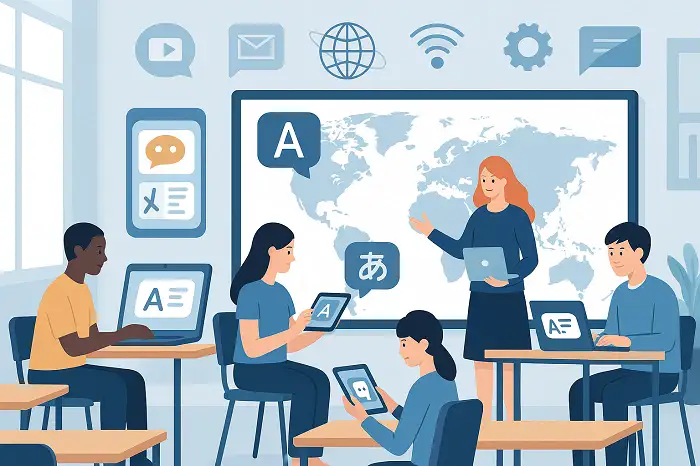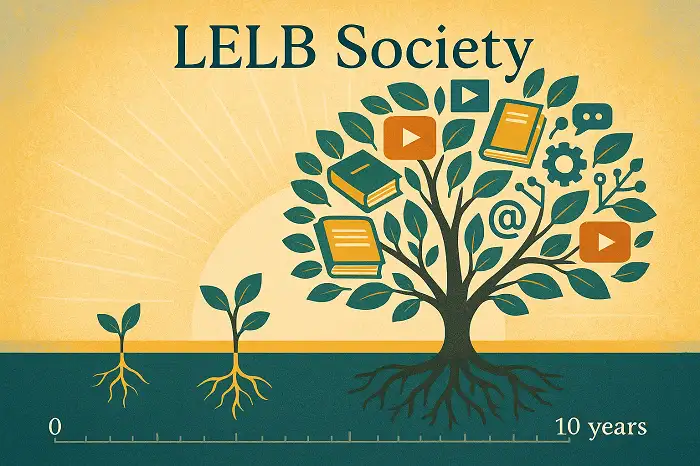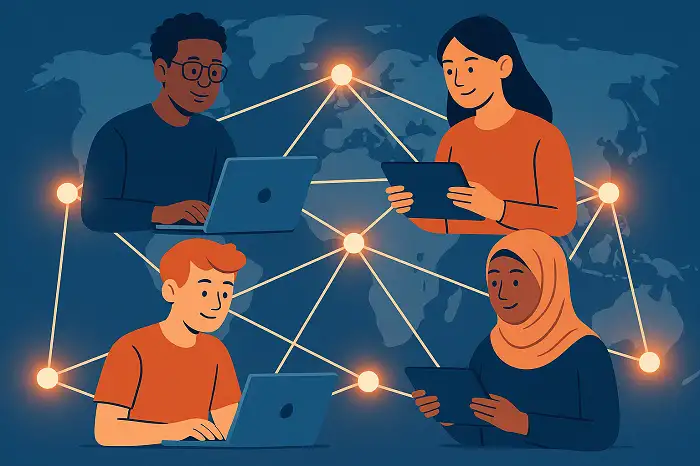Education IELTS Listening Reading Practice Education IELTS Listening Reading Practice IELTS Reading Practice Source: https://www.washingtonpost.com/blogs/answer-sheet/post/geniuses-born-or-made/2012/05/28/gJQAkvRhxU_blog.html?utm_term=.91f0207e145b Author: Valerie Strauss Jack Andraka is a 15-year-old kid from Maryland who just won the world’s largest and most important high school science fair by devising a new way to detect pancreatic cancer in its early stages. Andraka, from Anne Arundel County, nabbed the first-place $75,000 scholarship award at the Intel International Science and Engineering Fair in Pittsburgh and will also receive $12,000 in cash for his discovery. His detection method is elegant in its simplicity: He created a dip-stick sensor that can test blood or urine for ...
Home » Listening Practice in English » Education IELTS Listening Reading Practice

Education IELTS Listening Reading Practice
Updated: by Dr. Mohammad Hossein Hariri Asl
Time to Read: 5 minutes | 356 Views | 32 Comments on Education IELTS Listening Reading Practice
Share This Post
About the Author
Dr. Mohammad Hossein Hariri Asl is an English and Persian instructor, educator, researcher, inventor, published author, blogger, SEO expert, website developer, entrepreneur, and the creator of LELB Society. He's got a PhD in TEFL (Teaching English as a Foreign Language).
Number of Posts: 4242



13. What is the role of gyne in a genius?
Corrections:
Gene
12. We have some connections in our brain, How does this connection impact on individual differences? (5:30)
The connections in our brain, often referred to as brain connectivity, play a significant role in shaping individual differences. These connections influence how we think, feel, and behave, contributing to variations in cognitive abilities, personality traits, and social behaviors. For example, stronger connections in certain brain regions can enhance executive functions like decision-making and problem-solving, while differences in connectivity can explain why some people are more empathetic or better at multitasking than others.
11. What can neuroscientists do for understanding a genius more and more?
What kind of study neuroscientists should do for understanding a genius?
Neuroscientists can better understand geniuses by using brain imaging techniques to study structural and functional differences, conducting cognitive tests to assess abilities, exploring genetic factors, performing longitudinal studies to track development over time, and analyzing detailed case studies of known geniuses. These approaches provide insights into the unique patterns, experiences, and factors that contribute to exceptional abilities.
11. What is the idea that Dr. Joy Hirsch has learned from neuroscientist recently?
*neuroscientists
Great! You’ve corrected yourself.
Dr. Joy Hirsch, a neuroscientist at Yale, recently discovered that real-time, face-to-face conversations create a unique pattern of neural activity in the brain, which is different from virtual interactions like Zoom. Her research highlights the importance of in-person social interactions for engaging brain areas responsible for social processing and emotional connection.
10. What does a genius term mean? (3:00)
The term “genius” refers to an individual who possesses exceptional intellectual or creative abilities, often significantly surpassing that of the average person. Geniuses are recognized for their extraordinary achievements in various fields, such as science, art, music, or literature. Their innovative thinking, problem-solving skills, and unique insights often lead to groundbreaking discoveries or creations that can influence and shape the world.
9. What does she mean by saying “a double-edged sword”?
A “double-edged sword” is an idiom that describes a situation or object that has both positive and negative consequences. Like a sword with two sharp edges, which can cut both ways, something referred to as a double-edged sword can bring both benefits and drawbacks. For example, technology can be considered a double-edged sword because it offers incredible convenience and advancements, but it can also lead to issues like privacy concerns and social disconnection. Essentially, it highlights the idea that every advantage often comes with a potential downside.
8. What does desist people from taking a risk? (2:50)
Desist means to stop, prevent, cease or abstain someone from doing something.
7. Is it correct to consider geniuses as individual persons? Why?
Corrections:
Unlike the use of “regard”, after “consider” you should not use “as”.
6. What is the role of chance and society to allow people to be creative? (1:50)
Chance and society play significant roles in fostering creativity. Chance can lead to unexpected encounters, opportunities, and experiences that spark new ideas and perspectives. Serendipity often leads to creative breakthroughs when people are exposed to different environments, cultures, and challenges.
Society contributes by creating environments that either encourage or stifle creativity. Supportive societies provide resources, education, and platforms for expression, enabling individuals to explore and develop their creative potential.
5. What does she mean by saying “We could value more the person that takes the path that is not the common path”?
I have no idea. The quote is rather ambiguous and unclear.
4. What is the rule of taking a risk to become a genius?
role
Great! You’ve corrected yourself.
Taking risks plays a crucial role in the journey of becoming a genius. It involves stepping out of comfort zones, embracing uncertainty, and being open to failure. By taking risks, individuals can explore uncharted territories, challenge conventional thinking, and make innovative discoveries.
3. Is it possible to enhance natural creativity?
Enhancing natural creativity is possible through various strategies such as engaging in diverse activities, embracing curiosity, practicing mindfulness and reflection, collaborating with others, creating a stimulating environment, and allowing time for downtime. These practices broaden perspectives, inspire innovative thinking, and help creativity flourish.
What does writer mean by that IQ definition by IQ more than 140 is arbitrary?
Corrections:
What does “the” writer …
Can we do something to make ourselves genius?
While becoming a genius involves a combination of innate talent and environmental factors, we can enhance our potential by engaging in lifelong learning, cultivating curiosity, practicing creative problem-solving, and embracing challenges. Developing a growth mindset, collaborating with others, and seeking diverse experiences can also foster intellectual and creative abilities, helping us unlock our full potential.